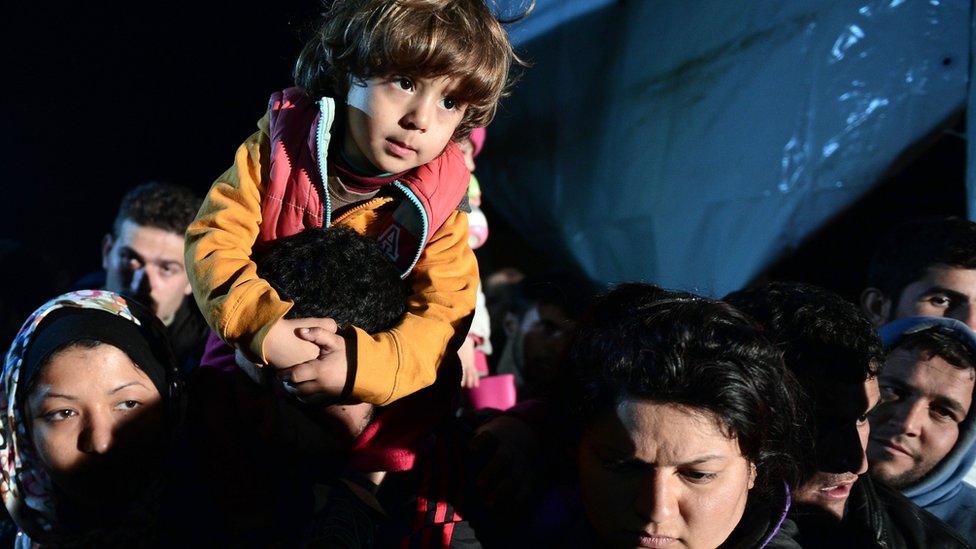Migrant crisis: Greece needs EU help to avoid chaos, says Merkel
- Published

Greece has warned that the number of migrants on its soil could triple next month due to the restrictions
Europe cannot allow Greece to fall into "chaos", German Chancellor Angela Merkel says, amid sharp divisions among members over the migrant crisis.
Austria and several Balkan countries have introduced restrictions stranding migrants in Greece.
Mrs Merkel said EU nations had not battled to keep Greece in the euro just to leave it "in the lurch".
She also defended her decision to open German borders to migrants, despite a resulting slump in her popularity.
More than one million people arrived to claim asylum last year, sparking opposition within her governing coalition and a rise in far-right extremism.
EU migration: Crisis in graphics
Migrant stories: The pull of Europe
But speaking on Germany's ARD television, Mrs Merkel said she had no "Plan B" and would not change course, rejecting a proposed limit on migration.
In the coming weeks she faces a major test when voters go to the polls in three German states.
On Greece she said: "Do you seriously believe that all the euro states that last year fought all the way to keep Greece in the eurozone, and we were the strictest, can one year later allow Greece to, in a way, plunge into chaos?"
Greece is the main entry point for migrants arriving in Europe, and was infuriated after a group of countries led by Austria installed controls.
It recalled its ambassador to Austria after the group held talks but did not invite Greece.
A key meeting is scheduled on 7 March between EU members and Turkey and a further summit due later that month.
With more migrants expected to take advantage of warming weather to travel to Europe, it will be a chance for the EU to agree the common response that has so far eluded them.
